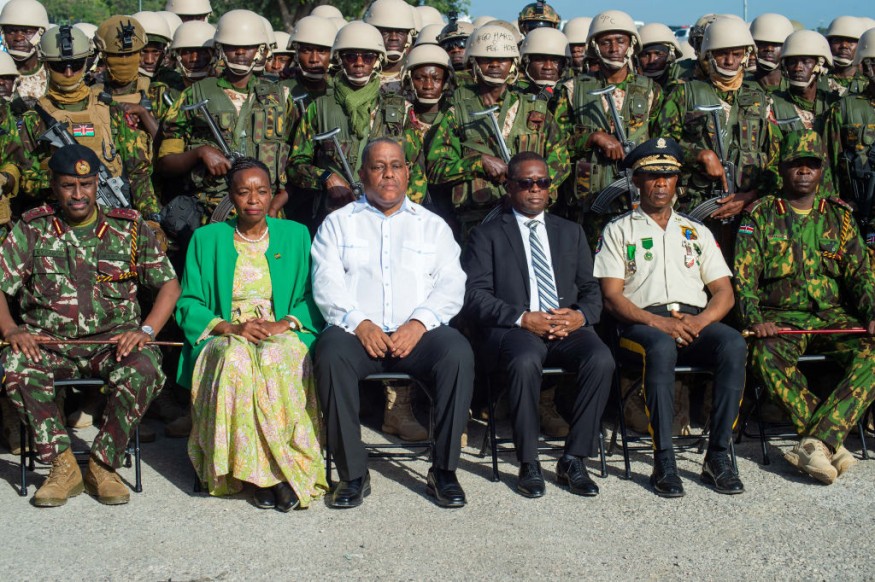Haiti Prime Minister Garry Conille Warns Gangs, Vows to "Reclaim Control of the Country"

Haiti's interim Prime Minister Garry Conille vowed to reclaim the country from heavily armed gangs with the help of 200 newly arrived Kenyan officers.
Conille, alongside police chief Rameau Normil and the head of the Kenyan-led force, pledged to retake control neighborhood by neighborhood, according to the Miami Herald.
The mission, backed by the UN, faces high stakes as Haiti gangs control over 80% of Port-au-Prince.
Hours after Conille's warning, the 400 Mawozo gang set fire to a town hall near the Kenyans' base.
The mission's success remains uncertain, with more Kenyan officers expected soon.
The year-long, $600 million mission has only $21 million in a UN trust fund, with the Biden administration contributing over $300 million.
Keith Mines from the US Institute of Peace enthusiastically acknowledged the challenge ahead.
US Expands Support for Haitians
Haiti's security mission faces challenges beyond funding.
Though the force aims to reach 2,500, the current base holds only 450, limiting troop presence.
Despite this, Prime Minister Garry Conille's outreach efforts show positive momentum.
Keith Mines from the US Institute of Peace warns of potential risks, like a catastrophic incident or civilian casualties.
The Biden administration announced expanded deportation relief and work permits for 309,000 Haitians in the US, extending Temporary Protected Status (TPS) through February 2026 due to ongoing violence in Haiti, Reuters noted.
This extension covers 264,000 Haitians who are already enrolled and adds new eligibility.
President Biden, balancing immigration policy, faces criticism from former President Trump over illegal immigration.
Haiti's gang wars have displaced over half a million people and caused severe food insecurity.
Armed groups control most of the capital, forming alliances and committing widespread violence.
TPS, offering deportation relief and work permits, will now be available to Haitians in the US on or before June 3.
This program, subject to regular renewals, has faced political challenges, with former President Trump attempting to end it but being blocked by courts.
Haitian migrant crossings have decreased as legal pathways to the US have increased.
The Human Cost of Gang Violence
Haiti gangs' violence is dire, with over one person killed or injured every hour in early 2024.
Nearly 600,000 people are displaced; many seek refuge in schools and police stations. Haiti's 9,000 police officers are up against approximately 8,000 gang members, both sides wielding similar firepower.
Colombia's President accused his military of smuggling arms into Haiti, BBC reports.
Despite facing domestic opposition and legal challenges, Kenya's President Ruto pledged Kenya police to assist, emphasizing shared responsibility for Haiti's security.
Kenya, now a major non-NATO ally, trained its officers in French and Haitian Creole.
The mission's success is uncertain, given Haiti's history of failed peacekeeping efforts.
Concerns about Kenyan police brutality persist, with recent allegations of excessive force against protesters.
Haiti Prime Minister Garry Conille hopes for a different outcome from past missions, which included significant UN deployments in 1994 and 2004.
READ MORE : Former Honduran President Juan Orlando Hernandez Faces 45-Year Sentence for Drug Trafficking
This article is owned by Latin Post.
Written by: Ross Key
WATCH: Haiti crisis in numbers - BBC Africa - From BBC News Africa
Subscribe to Latin Post!
Sign up for our free newsletter for the Latest coverage!
© 2025 Latin Post. All rights reserved. Do not reproduce without permission.















